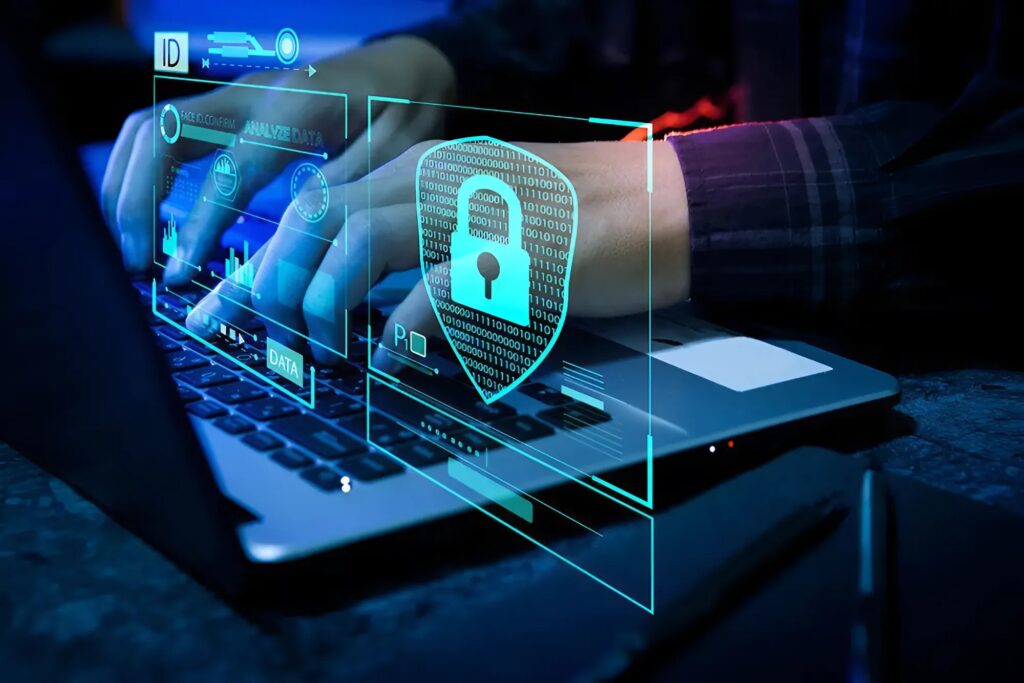Dijital Dünyada Güvenliğin AnahtarıThe Key to Security in the Digital World
In today’s world, the internet is in every aspect of our lives: At work, at home, even on the road. However, this digital age brings with it certain risks. The theft of our personal data, companies being exposed to cyber-attacks or the loss of important information as a result of a moment of carelessness… This is where cyber security comes into play. So, what exactly is cyber security? Why is it so important? And most importantly, how can we protect ourselves and our data? In this article, we will discuss in detail what cybersecurity is, its advantages and practical tips you can apply in your daily life. If you are ready, let’s open the doors of security in the digital world!

What is Cyber Security?
Cyber security is the art of protecting digital systems, networks, devices and data from unauthorized access, attack or damage. It is the set of methods, processes and technologies used to secure technology such as computers, smartphones, cloud systems and even smart home devices.
This area is important not only for large companies, but also for individuals. For example, the compromise of a social media account can put your personal information at risk. Likewise, if a business suffers a data leak, it can cause millions of pounds in losses and reputational damage. Ensuring security in the digital world is like creating a shield.
What are the Key Elements?
Digital security has several basic building blocks:
Data Security: Protecting the confidentiality, accuracy and availability of information.
Network Protection: Prevent unauthorized access by analyzing network traffic.
Application Security: Ensuring the secure operation of software and applications.
Operational Security: Managing security processes and rules.
Disaster Recovery: Restoring data and systems after an attack.
Advantages of Cyber Security
The benefits of digital security are indispensable for both individuals and organizations. Here are the most important advantages:
1. Protection of Data and Privacy
Personal data is one of today’s most valuable treasures. Security measures prevent this data from falling into the hands of malicious people. For example, your bank details or health records can be protected with strong encryption. This helps companies gain customer trust, while increasing the privacy of individuals.
2. Reducing Financial Losses
Cyber attacks, especially threats such as ransomware, can cause serious financial damage. Security measures protect the budgets of both individuals and businesses by reducing such risks. For example, a data breach can mean compensation payments and loss of customers for companies.
3. Ensuring Business Continuity
A cyber attack can bring a business to a halt. Security systems ensure that data and infrastructure are protected, allowing operations to continue uninterrupted. For example, measures taken against a DDoS attack ensure that a website stays online.
4. Reputation and Customer Trust
Customers want to know that their data is safe. Investments in security increase a business’s credibility and strengthen customer loyalty. For example, an e-commerce site that offers a secure payment system encourages repeat purchases.
5. Compliance with Legal Requirements
In many industries, compliance with data protection laws is mandatory. Security measures facilitate compliance with these legal standards and avoid penalties.
Why is it so important?
Cyber threats are increasing every day. According to 2024 data, the global cost of cyber attacks has exceeded 8 trillion dollars. Threats such as phishing, malware, ransomware attacks and social engineering target both individuals and organizations.
Moreover, with the proliferation of technology, cybercriminals are using more sophisticated methods. AI-powered attacks make it harder to detect fake emails or audio recordings. Therefore, taking digital security seriously is not an option, but a necessity.
Practical Cyber Security Tips
Both individuals and organizations can improve digital security with some simple but effective steps. Here are some tips you can apply in everyday life:
1. Strong and Unique Passwords
Use different and complex passwords for each account.
Combine letters, numbers and special characters in your passwords.
Store your passwords securely with password manager apps.
Example: Choose a password such as “K7!mNp#2025” instead of “password123”.
2. Two-Factor Authentication (2FA)
Enable 2FA on email, bank accounts and social media platforms. This greatly prevents unauthorized access to your account. For example, you may need a code that comes to your phone in addition to your password.
3. Keep Software Up-to-Date
Operating systems, applications and antivirus software should be updated regularly. Updates close known vulnerabilities and strengthen your system.
4. Beware of Suspicious Emails
Phishing attacks often happen through fake emails. Do not click on links or open attachments in emails from unfamiliar sources. For example, even an email that appears to be from your bank can be fake.
5. Secure Internet Connections
Encrypt your data using a VPN on public Wi-Fi networks. The password for your home Wi-Fi network should be strong and the default settings should be changed.
6. Regular Backup
Back up your data regularly. Protect your important files using cloud storage or an external hard disk. This allows you to recover your data in the event of a ransomware attack.
7. Education and Awareness
Educate yourself and your employees on digital security. Be wary of tactics such as social engineering. For example, avoid sharing personal information in a phone call.
Conclusion Security is a Matter of Consciousness
It is essential to take security measures to exist safely in the digital world. Integrate these steps into your life to protect your data, prevent financial loss and maintain your reputation. Even simple practices like strong passwords, two-factor authentication and regular updates can make a big difference.
Security is not only a matter of technology, but also a matter of awareness. By educating yourself and your environment, you can build a stronger defense against cyber threats.


